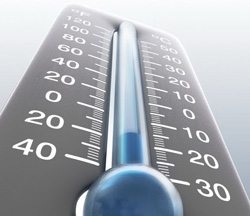Things like takng precautions against burst water pipes, checking that the sprinkler system is off and foundation vents are closed, can prevent trouble at your home. Following the suggestions below could help you and your family stay warm and avoid a catastrophe.
Burst pipes cause large plumbing repair bills, and although the city of Garland maintains water mains that feed the customer’s meters, pipes from the meter to the house are the responsibility of the customer.
Prevent frozen pipes
- Cover outside faucets with insulating foam covers.
- Turn off water to outside faucets, if possible. Open valves on faucets to allow them to drain.
- Turn off sprinkler system.
- Cover foundation vents under house.
- Open cabinet doors under sinks
- Drip hot and cold faucets in kitchen and bath. Drip single control faucets with lever set in middle.
- Set icemaker to make ice if the water line to it runs under the house.
- Check on pipes to washing machine in the laundry room
- Locate water main cut-off valve and have a cut-off key handy.
- Use a hairdryer, heat lamp, electric heat tape or a portable space heater to thaw frozen pipes that have not burst.
- Keep faucet open when thawing frozen pipes to allow water to begin flowing through it.
- After the weather has warmed above freezing and any frozen pipes have thawed, turn off dripping faucets and monitor your water meter to check for unseen leaks.
Keep home as warm and safe as possible
- Inspect fireplaces, and chimneys before using, and have them cleaned if needed.
- Keep drapes and blinds closed unless windows are in direct sunlight.
- Cover window air conditioners.
- Keep garage doors closed.
- Repair or replace weather stripping and thresholds around doors and windows.
- Seal places where warm air might escape your home – around vent pipes, exhaust fans, chimneys, attic openings, light fixtures.
- Run ceiling fans on low in reverse (clockwise when looking up) to circulate warm air.
- Have a working fire extinguisher on hand for emergencies.
Protect vehicles
- Check antifreeze levels in cars. Add if needed, then run the engine to circulate the new antifreeze through the radiator and engine block.
- Check air pressure in tires, since cold weather causes the pressure to lower.
Protect outside of home
- Bring in container plants, add mulch around plants and cover plants that are prone to frost damage.
- Drain birdbaths and fountains.


